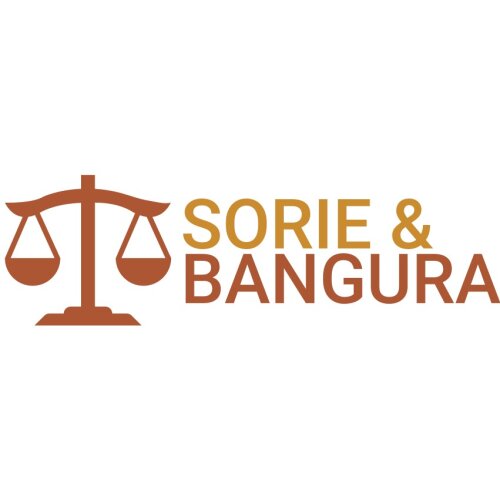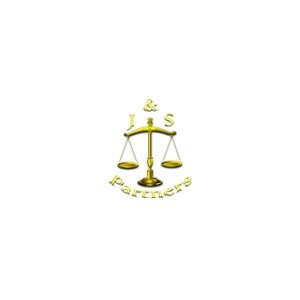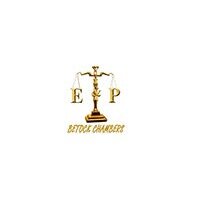Best Collaborative Law Lawyers in Sierra Leone
Share your needs with us, get contacted by law firms.
Free. Takes 2 min.
Free Guide to Hiring a Family Lawyer
Or refine your search by selecting a city:
List of the best lawyers in Sierra Leone
About Collaborative Law in Sierra Leone:
Collaborative Law in Sierra Leone is a legal process that focuses on resolving disputes outside of court. It involves both parties and their respective lawyers working together to reach a mutually acceptable agreement. This approach emphasizes open communication, transparency, and cooperation to find a resolution that meets the needs of all parties involved.
Why You May Need a Lawyer:
You may need a lawyer in Collaborative Law if you are dealing with a complex legal issue, such as a divorce or business dispute, and want to explore alternative dispute resolution methods. A lawyer can provide legal advice, represent your interests during negotiations, and help ensure that your rights are protected throughout the collaborative process.
Local Laws Overview:
In Sierra Leone, Collaborative Law is not specifically regulated by legislation, but it is a recognized practice in resolving various types of disputes. The legal system in Sierra Leone values the principles of collaboration, respect, and fairness, making it an ideal environment for parties to engage in collaborative processes to find solutions to their legal issues.
Frequently Asked Questions:
1. What types of cases can be resolved through Collaborative Law in Sierra Leone?
Collaborative Law can be used to resolve a wide range of cases, including family law matters, business disputes, and civil disputes.
2. How does Collaborative Law differ from traditional litigation?
Collaborative Law focuses on cooperation and problem-solving, while traditional litigation involves adversarial proceedings in court.
3. Can I choose my own lawyer for Collaborative Law in Sierra Leone?
Yes, you have the right to choose your own lawyer to represent your interests during the collaborative process.
4. What are the advantages of choosing Collaborative Law over litigation?
Some advantages of Collaborative Law include lower costs, faster resolution, and greater control over the outcome of the case.
5. What happens if we cannot reach an agreement through Collaborative Law?
If an agreement cannot be reached, both parties will need to seek alternative dispute resolution methods or proceed to court litigation.
6. Is Collaborative Law legally binding in Sierra Leone?
Yes, the final agreement reached through Collaborative Law is legally binding once approved by the court.
7. How long does the Collaborative Law process typically take in Sierra Leone?
The length of the process can vary depending on the complexity of the case and the willingness of both parties to cooperate. On average, Collaborative Law cases in Sierra Leone can be resolved within a few months.
8. Can I use Collaborative Law for criminal cases in Sierra Leone?
No, Collaborative Law is typically used for civil matters and is not applicable to criminal cases in Sierra Leone.
9. Are the discussions and negotiations in Collaborative Law confidential?
Yes, discussions and negotiations in Collaborative Law are confidential and cannot be disclosed in court proceedings.
10. How can I find a Collaborative Law lawyer in Sierra Leone?
You can search for experienced Collaborative Law lawyers through legal directories, bar associations, or recommendations from other legal professionals.
Additional Resources:
For more information on Collaborative Law in Sierra Leone, you can contact the Sierra Leone Bar Association or the Ministry of Justice for guidance and support.
Next Steps:
If you are considering Collaborative Law for your legal issue in Sierra Leone, the next step is to consult with a qualified lawyer who can assess your case and help you decide if Collaborative Law is the right approach for you. Be sure to discuss your options and goals with your lawyer before proceeding with any collaborative process.
Lawzana helps you find the best lawyers and law firms in Sierra Leone through a curated and pre-screened list of qualified legal professionals. Our platform offers rankings and detailed profiles of attorneys and law firms, allowing you to compare based on practice areas, including Collaborative Law, experience, and client feedback.
Each profile includes a description of the firm's areas of practice, client reviews, team members and partners, year of establishment, spoken languages, office locations, contact information, social media presence, and any published articles or resources. Most firms on our platform speak English and are experienced in both local and international legal matters.
Get a quote from top-rated law firms in Sierra Leone — quickly, securely, and without unnecessary hassle.
Disclaimer:
The information provided on this page is for general informational purposes only and does not constitute legal advice. While we strive to ensure the accuracy and relevance of the content, legal information may change over time, and interpretations of the law can vary. You should always consult with a qualified legal professional for advice specific to your situation.
We disclaim all liability for actions taken or not taken based on the content of this page. If you believe any information is incorrect or outdated, please contact us, and we will review and update it where appropriate.
Browse collaborative law law firms by city in Sierra Leone
Refine your search by selecting a city.











